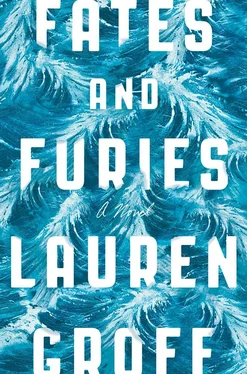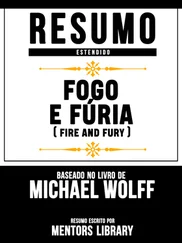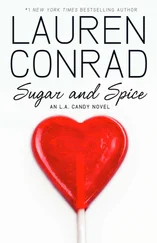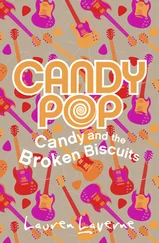Little goblin-man. Once he’d tried to push her into a bathroom at a party and she’d had to knee him in the nads to get him away from her.
“Fuck, Chollie,” she said. She paddled to the side of the pool and climbed out. “I can’t have a little solitude? Hand me that towel,” she said. He did, if with excruciating slowness.
“There’s solitude and then there’s suicide,” he said. “You look like a chemo patient with that hair. Or lack thereof.”
“Why are you here?” she said.
“Everyone’s worried. I’ve gotten ten calls in the past week alone. Danica thinks you’re going to do yourself in.”
“Well, now you can go home and report that I’m alive,” she said.
“So I see,” he said, grinning. “Vividly. In the flesh. I’m too hungry to drive. Feed me.”
She sighed. “The only thing I have is ice cream,” she said. “And it’s pistachio.”
He followed her into the kitchen, and while she scooped the ice cream for him, he reached for the letter perched in its blue bowl of tomatoes. He was always grabby, looking at things that didn’t concern him. She once found him in her office, reading the strange, spiky pieces of fiction she wrote on scraps.
“Hands off,” she said now. “Not for you.”
They went out to sit on the warm stones of the veranda while Chollie ate.
“It appears that I have a long history of sneaking up on you,” Chollie said. He belched and drove the spoon into the ground.
She thought of his hands on her forearms at some long-ago party, the need in his face. The tongue he’d once shoved into her ear. “Yes. We all know you’re a pervert,” she said.
“No. I mean, yes, but no, I’m thinking of something else. Did you know I followed you once? Back at Vassar. I hadn’t met you yet. You and Lotto had just gotten together and I knew there was something sketchy about you. So I followed you to the city.”
Mathilde went still.
“Strange to see the new girlfriend of my best friend getting into some limo. Don’t know if you remember, but I was fit back then, and I kept up. You got out and went into an apartment. So I sat in a diner across the way. You remember that diner.”
“Couldn’t forget,” she said. “And you were fat back then. You’ve never been fit, Choll.”
“Ha. Anyway, you came out in this awful outfit. See-through shirt, miniskirt like a Band-Aid. And you’re with this weird flabby-faced man who put his hands up your skirt. And I think, Huh. My buddy Lotto is the best person on the planet. Loyal as shit and kind, and lets me crash with him and is more my family than my family, just brilliant, this real fucking genius, though I don’t really think anybody knew that back then, but there was something in him. Charisma. Gentleness, a kind of acceptance of people for who they are. That’s rare, you know? Someone who never, never judges. Most people have a nasty interior monologue going on at all times, not Lotto. He’d rather think kindly of you. Easier that way. And he was so good to me. My family was a bunch of sadistic assholes, and I quit high school halfway through senior year so I could get away, and the only person on the planet who showed me consistent kindness was Lotto. From the time I was seventeen, Lotto was my home. So, anyway, here’s this astounding person, best person I ever knew, and his girlfriend is sneaking off to New York to fuck some old dude? So I go home, all ready to tell my best friend his girl is sleeping around, because what kind of person would lead Lotto on like that? I mean, the kind of person who’d hang a puppy for fun. The kind of girl who’d marry him for the money. But somehow you beat me back to the dorm. Or I fell asleep. I don’t remember. But I came out, and then I saw the way you and he were together and I knew I couldn’t tell him. Not yet. Because I saw then that he was cooked. He was so deep into you that if I said anything it’d be me to get the boot, not you.”
She was squinting at a troop of ants on the hot gray stone.
He waited, but she wouldn’t say anything, so he said, “So I thought I’d sit back and wait my time and then drive the knife in when nobody was expecting it.”
“Twenty-four years. And he died before you could,” she said softly. “Too bad. Tragedy.”
“Wrong,” he said.
She looked at him, sweating, pink. The last month before Lotto died returned to her. His sullenness, his monosyllables. The way he looked flinchingly in her direction. She searched for the last time they had seen Chollie together before Lotto died. And suddenly she saw the night in Ariel’s gallery, where he’d dragged her for Natalie’s posthumous opening, huge metallic sculptures with screaming faces in them, the place turned into a fairy-tale forest, all shadowy and dark. Perhaps, she had told herself, it had been so long, perhaps there was no more danger in Ariel. But some pretty little waiter-boy spilled red wine all over her silk dress and she hurried off to blot it away, and when she came back, her husband had been replaced by a robot that looked like him, a man who didn’t smile when he looked at her, who spoke to her glancingly, who, later, seethed. Somewhere between the moment he kissed her gently on the forehead, before the wineglass tipped off the tray and, with terrible slowness, spilled on her skirt, and the moment she returned, Chollie had told him about her arrangement with Ariel. The world flickered before her.
He saw the understanding and laughed, and said, “My dick’s on the table, baby. I play a long game.”
“Why?” she said.
“You took him,” he said, and his voice came out too raspy, too quick. He shuffled his glasses on his nose, folded his hands. “He was the only person I had and you took him. But also you’re a bad person who never deserved him.”
“I meant,” she said, “why now? Why not ten years ago? Why not twenty years from now?”
“We both know how much our old friend loved vagina. Any and all. And frankly, dear, I always knew that someday yours would be getting pretty old. All flabby and loose. Menopause setting in soon. And poor Lotto had always longed for a kid of his own. With you out of the way, he could have had the kid he wanted. And we all wanted to give him what he wanted. Didn’t we.”
She did not trust herself not to kill him with the spoon. She stood and came inside and locked the door behind her.
For hours after she’d watched Chollie walk down the gravel drive, Mathilde sat in the kitchen. Night fell and she didn’t turn on the lights. For dinner, she opened a bottle of gift wine from some producer of Lotto’s play years ago, wildly expensive and smoky and lingering on her tongue. When the bottle was finished, she stood and went all the way up to her husband’s studio at the top of the house. His jade plant, so long neglected, had blackened. His books were splayed, wide-winged around the room, his papers were still spread on the desk.
She sat on the leather chair and sank into the divot made by long years under her husband’s weight. She rested her head on the wall behind her, where it was shiny from his head. She looked at the window where he’d dreamt for so many hours, lost in his imaginings, and was filled with a kind of dark tingle. She felt enormous, the size of the house, crowned with the moon, wind in her ears.
[Grief is pain internalized, abscess of the soul. Anger is pain as energy, sudden explosion.]
This one would be for Lotto. “This will be fun,” she said aloud to the empty house.
GRADUATION DAY. Hills purple, sun astringent. The processional went too fast, so everyone was out of breath and laughing. Swift glimpse of Chollie’s fat face squeezed among the bystanders, unsmiling. Mathilde hadn’t bothered to tell her uncle she was graduating. She would have liked to see the driver, but she didn’t know his real name. She hadn’t spoken to Ariel since the last trip to the city, just after her final rent check went through, the contract fulfilled. Nobody was here to see her. Well. She hadn’t expected anyone.
Читать дальше












